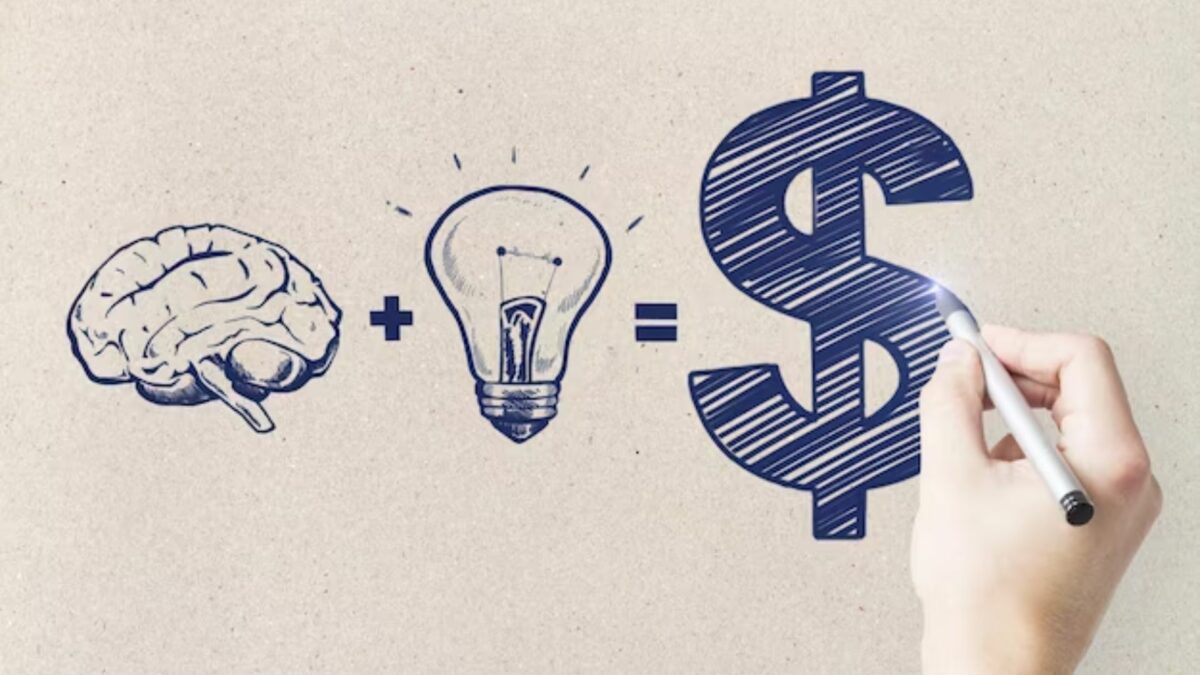“If only one man dies of hunger, that is a tragedy. If millions die, that’s only statistics.”
–Joseph Stalin
You have an opportunity to donate to a charity.
Charity A can provide clean drinking water to a refugee camp with 11,000 people. Efforts from this charity will save 4,500 lives.
Charity B can provide clean drinking water to a refugee camp with 250,000 people. Efforts from this charity will save 4,500 lives.
Which one would you prefer to send money to?
This was a question asked by Stanford University’s David Fetherstonhaugh and his colleagues in trying to understand how we deal with large tragedies.
They found that more people (44%) responded that it was better to support Charity A than that it made no difference which one they supported (42%).
Even though each charity could save the same amount of lives, we are subjected to a phenomenon in our limbic systems called psychophysical numbing, which, as Fetherstonhaugh and his research defined it, means that the larger the tragedy, the more numbed to it we are.
A tsunami kills hundreds of thousands, and we are struck by the magnitude of the tragedy, but not particularly affected by it. A small child is hit by a stray bullet and killed, and a significant portion of the town comes to the funeral to grieve with the parents.
Why?
The reason is twofold. First, our limbic systems, or Monkey Brain as I like to call it, since it’s the part of the brain that we share with simians, simply aren’t prepared to deal with such large numbers. When our ancient counterparts were roaming the plains searching for woolly mammoths, there was no such number as a billion, or even a million. A large number might be a herd of fifty mammoths or hundreds of leaves on a tree.
The second reason is that we are sensitive to large changes in small numbers but not to small changes in large numbers, even if the magnitude of the small change in a large number is much greater. As we saw in “Monkey Brain Confuses Rates and Raw Numbers,” we don’t do well at estimating or large percentages, and we don’t often take the step involved to multiply the rate and the number to determine the true outcome.
As the University of Oregon’s Drs. Paul Slovic and Ellen Peters explain, we often focus on the numerator and not the denominator when faced with numerical problems. When asked whether they wanted to pick from a jar that had one winning red jellybean and nine losing white jellybeans or seven winning red jellybeans and ninety three losing white jellybeans, people invariably chose the latter bet, figuring, incorrectly, that since there were seven winners versus one, their odds were better.
The larger the number, the more Monkey Brain is numbed to its affects.
While this numbing helps us not break down into wailing of misery every time something bad happens in the world (by the way, turning off the television and not reading the news helps, too), it can have devastating effects in our financial lives.
How psychophysical numbing causes pain in our wallets

Because Monkey Brain’s eyes roll whenever it comes to large numbers, he focuses on the small, unimportant numbers so that he can feel like he’s doing something and making himself feel better.
“MATH HARD,” he’ll tell you. “EASIER TO FIND COUPONS.”
As a result, we find ourselves spending time and effort on the small payoff activities while the big payoff activities go unnoticed:
- Paying unnecessary “investment advisor” fees for someone to underperform the market
- Spending all weekend cutting coupons for 50 cents off of yogurt, bread, and cheese instead of investing in activities that could generate real income
- Agonizing for weeks over haggling over and purchasing a car but not shopping for a mortgage
What’s happening in these situations is that we’re focused on large percentages of small numbers. If you get a 50 cent coupon off of a $3 box of cereal, you’ve saved 17%. 17% seems like a big number, especially compared to a 1% assets under management fee. But, it’s 50 cents versus tens of thousands of dollars once you apply the percentages.
Bring a little pain to Monkey Brain

Instead of focusing on the little, inconsequential numbers, focus on the big numbers and the bigger picture.
Here are a couple of suggestions for how to fight back when Monkey Brain wants to numb himself:
- DO the math. Because, back in the old days, we really didn’t need to do multiplication, Monkey Brain uses shortcuts, called heuristics, to arrive at answers. Oftentimes, when the heuristics involve larger numbers, Monkey Brain comes up with the wrong answer. When you’re looking at money, take the time to actually calculate how much whatever you’re doing is impacting your life. This is particularly true when there are large numbers involved. It’s easy to add $2,000 leather seats to a $35,000 car because, hey, you’re already spending $35,000, and what’s another $2,000, particularly if it’s financed! Don’t fall for the trap just because Monkey Brain doesn’t like carrying the 3.
- Reframe the decision in terms of what that money could buy you down the road. Could you retire earlier? Could you take an additional vacation? Put a little more away for the kids’ college fund? Large numbers, in abstract, have no meaning for Monkey Brain. It’s up to you to provide that meaning for him so that Thinking You, your prefrontal cortex, the one that makes sound, rational decisions, has a chance to participate.
It’s easy to give in to quick rules of thumb and let your eyes glaze over when large numbers are involved. However, it’s not hard to take the extra steps necessary to avoid psychophysical numbing and to make the proper decisions in your financial life.
Does Monkey Brain drive you psycho when it comes to large numbers? Let’s talk about it in the comments below!
Author Profile
- John Davis is a nationally recognized expert on credit reporting, credit scoring, and identity theft. He has written four books about his expertise in the field and has been featured extensively in numerous media outlets such as The Wall Street Journal, The Washington Post, CNN, CBS News, CNBC, Fox Business, and many more. With over 20 years of experience helping consumers understand their credit and identity protection rights, John is passionate about empowering people to take control of their finances. He works with financial institutions to develop consumer-friendly policies that promote financial literacy and responsible borrowing habits.
Latest entries
 BlogJuly 8, 2024How to Fast-Track Approval for Section 8 Vouchers
BlogJuly 8, 2024How to Fast-Track Approval for Section 8 Vouchers BlogJuly 8, 2024Unlock Apple Business Credit with No Credit Check Needed
BlogJuly 8, 2024Unlock Apple Business Credit with No Credit Check Needed BlogJuly 8, 2024A $18 Million Per Year Investment Plan for Democrats to Control the Texas House
BlogJuly 8, 2024A $18 Million Per Year Investment Plan for Democrats to Control the Texas House Low Income GrantsSeptember 25, 2023How to Get a Free Government Phone: A Step-by-Step Guide
Low Income GrantsSeptember 25, 2023How to Get a Free Government Phone: A Step-by-Step Guide

